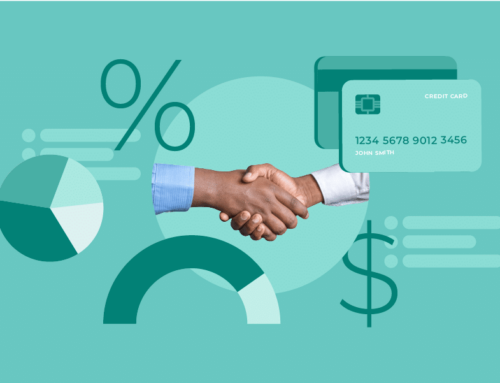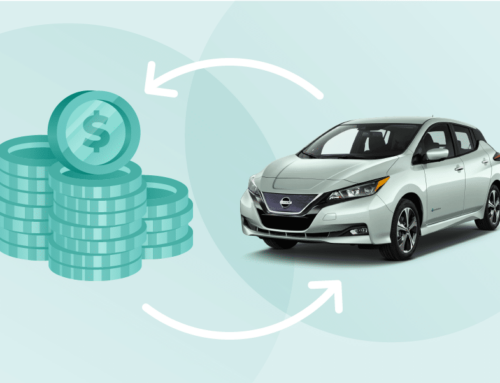As the novel coronavirus (COVID-19) pandemic swarms in, many of us are looking at potentially long periods of unemployment or severely slashed wages. According to a survey conducted by Angus Reid, it was reported that 44 percent of Canadians have lost work because of the current COVID-19 pandemic. Alongside this, it resulted that another 18 percent anticipated work loss. Among those who lost their jobs, 66 percent said their employer is not paying for any lost hours. Its clear COVID-19 is affecting Canadians and their finances. Let’s discover how financially equipped you are.
A recent study by Loans Canada reported that 67 percent of respondents who claim to be financially knowledgeable aren’t saving for emergencies, tracking their spending or paying off their credit cards in full. In a time of such uncertainty, we are seeing an abundance of companies laying off staff, business’s shutting their doors and limited jobs available to apply for. These are the times an emergency fund would be essential.
An important question to ask yourself is: “Do I know how to budget?”. We recently discussed how to cut costs in a pandemic and why you need to budget. It’s not too late to start one and to transform your left-over cash into a fool-proof emergency fund. When the unexpected comes your way, it’s ideal to budget, pay your essential bills and prepare for your future.
Let us show you how to manage a budget when you’re out of work.
What are you entitled to?
If you’ve recently been laid off from your job, you should first find out what government benefits you may be entitled to in order to manage a new budget. Prime Minister of Canada, Justin Trudeau, has recently revealed a new Canadian Emergency Response Benefit which provides anyone out of work due to COVID-19 with $2000 every four weeks for up to four months. Also, in many jobs, you often pay into an Employment Insurance Fund. To find out if you’re applicable for Employment Insurance, click here.
Create (or revise) your budget
When circumstances change and you aren’t receiving your regular working income, it’s time to revise your budget. We usually create a budget, whether we’ve written it down or have one in mind every time you look at our paycheck, of what money needs to go where each month. When you’re out of work and depending on government benefits, your budget will change drastically and it’s important to note this while assessing your funds first.
If you’re in debt due to job loss, it’s good practice to strategically spread out your bill payments. Often, you can pay smaller amounts to your bills without it impacting your credit. It’s also extremely beneficial to seek advice on how to budget. Score-Up can help provide you with budgeting tools ad cash flow analysis, to assist in your money management.
Prioritize your expenses
When managing your budget while out of work, you must prioritize your expenses, especially your bills. It’s important to look at your bank statements and get an idea of how much you spend on food, utilities and other essentials. Rent is a priority and paying back your credit card bills is important in order to maintain great credit for your future. Now is the time to unsubscribe to any costly monthly TV streaming services. Write a list of your monthly bills in order of importance and cancel anything else.
Adjust your spending
It’s always fun to online shop or picks yourself up some extra treats on your weekly food shop while browsing the aisles. When in a situation where you’re in extreme budget mode and have limited income, sporadic spending needs to be eliminated.
For a period, it’s important to only spend your money on items of priority, such as food, bills and medication, if needed. As difficult as it seems, remember that this is a short–term measure to take as a debt prevention method, and you will hopefully be back on track by the end of the year.
When adjusting your spending, and you find yourself with extra cash, apply this cash to benefit your credit health. Score-Up, our proprietary credit improvement software features a Money Simulator. This provides advice on the distribution of available cash flow and funds to achieve a higher score. In time, you will thank yourself for adjusting your spending in favour of your financial future.
Build your credit score and prepare for the future
When out of work, you may think that the best way to broaden your budget is to stop paying your credit card bills. Wrong. This is probably the worst thing to do. If you stop paying your credit card bills, you are increasing the amount of debt you have, adding high-interest rate charges, and seriously damaging your credit score.
Your credit health is paramount and neglecting it at any stage can result in extreme difficulty in obtaining any financial product, ejecting you from mainstream banking. When you get back to working full-time and are looking to obtain a personal loan, a car loan or maybe even your first mortgage, you will find it extremely difficult to negotiate interest rates or even be considered for a financial product due to a low credit score.
Why not use this time while you’re out of work to focus on building your credit even further? Score-Up can help you boost your credit score quickly, helping to promote a promising financial future for you. Score-Up’s combination of Point Deduction Technology, Credit Monitoring, and Budgeting Software create a perfect concoction of credit building power.
About Marble Financial Inc. (CSE: MRBL; OTCQB: MRBLF) We are a group of forward-thinking financial technology experts that fully understand the benefits and drawbacks of credit in Canada. Marble helps Canadians increase their credit to gain access to prime lending. Through our industry-leading proprietary technology solutions Fast- Track, Score-Up, and Credit-Meds. Our proven strategy guides our customers back to a meaningful credit score, 50% quicker than traditional methods. Since 2016, Marble is proud to have empowered thousands of Canadians to a positive financial future. We continue to establish ourselves as leaders in financial wellness.






